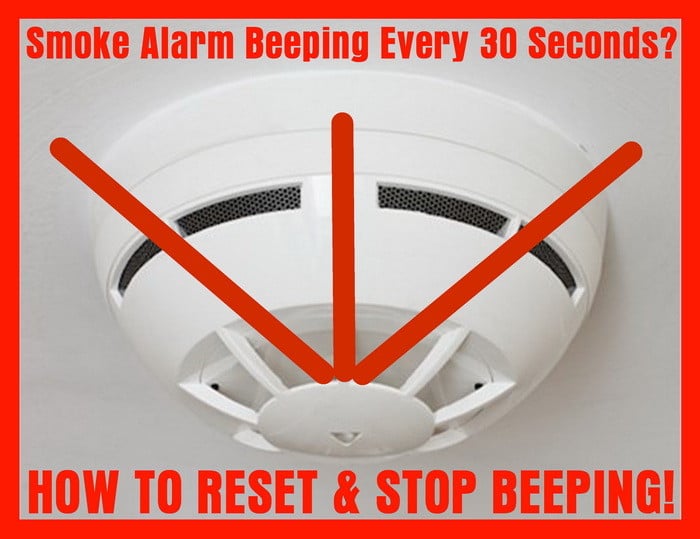Smoke detectors are essential safety devices that protect us from the dangers of smoke and fire. However, when they start beeping unexpectedly, it can create confusion and concern. Understanding the reasons behind this noise is crucial for ensuring your home remains safe and secure. In this article, we will explore the various causes of smoke detector beeping, what you should do when it happens, and how to maintain these devices for optimal performance.
Many homeowners experience the frustration of a smoke detector beeping at inopportune times, such as late at night or during family gatherings. This can lead to panic or annoyance, especially if you’re unsure of the cause. In most cases, the beeping serves as a warning signal, indicating that something requires your immediate attention. Knowing the different reasons for this noise can help you respond effectively and maintain peace of mind.
In the following sections, we will address common questions regarding smoke detector beeping, including troubleshooting tips and maintenance advice. By understanding the reasons behind the beeping and how to address it, you can ensure that your smoke detectors function properly and continue to keep your family safe.
What Causes Smoke Detector Beeping?
Smoke detector beeping can be attributed to several factors, including:
- Low Battery: One of the most common reasons for smoke detector beeping is a low battery. When the power level drops, the unit emits a chirping sound to notify you that it’s time to replace the battery.
- Dust and Debris: Accumulation of dust and debris can interfere with the smoke detector's sensors, triggering false alarms or beeping.
- Malfunction: Occasionally, smoke detectors may beep due to internal malfunctions. If the unit is old or damaged, it may need to be replaced.
- End of Life: Smoke detectors have a lifespan of about 8 to 10 years. When they reach the end of their life, they may emit beeping sounds to signal that it’s time for a new unit.
How Can I Stop My Smoke Detector From Beeping?
If your smoke detector is beeping, follow these steps to stop the noise:
- Check the Battery: Replace the battery if it’s low or dead. Most smoke detectors require a 9-volt battery.
- Clean the Unit: Use a vacuum cleaner or a soft brush to remove dust and debris from the smoke detector.
- Reset the Alarm: Some smoke detectors have a reset button. Press it to silence the beeping.
- Replace the Unit: If the smoke detector is old or has malfunctioned, consider replacing it with a new one.
Are There Different Types of Smoke Detectors?
Yes, there are several types of smoke detectors, including:
- Ionic Smoke Detectors: These detectors use ionization technology to detect fast-flaming fires.
- Photoelectric Smoke Detectors: These units are more effective at detecting smoldering fires and are less prone to false alarms.
- Combination Detectors: These devices combine both ionization and photoelectric technologies for comprehensive fire detection.
What Should I Do If My Smoke Detector Keeps Beeping?
If your smoke detector continues to beep despite checking the battery and cleaning the unit, consider the following steps:
- Check for Other Alarms: Ensure that other smoke detectors in your home are not beeping as well, as they may be interconnected.
- Consult the Manual: Refer to the smoke detector’s user manual for troubleshooting tips specific to your model.
- Contact Support: If you cannot identify the issue, reach out to the manufacturer for assistance or consider hiring a professional.
How Often Should I Test My Smoke Detector?
It’s recommended to test your smoke detectors at least once a month to ensure they are functioning properly. Use the following tips for effective testing:
- Press the Test Button: Most smoke detectors have a test button that, when pressed, will sound the alarm to confirm it’s working.
- Replace Batteries Annually: Change the batteries in your smoke detectors once a year, even if they are not beeping.
- Replace Units Every 8-10 Years: Follow the manufacturer's guidelines for replacing smoke detectors according to their lifespan.
Can I Silence My Smoke Detector Temporarily?
If you need to silence your smoke detector temporarily, most models have a hush button that allows you to mute the alarm for a short period. However, this should only be done when you are certain there is no smoke or fire present. Remember to address the underlying issue causing the beeping as soon as possible.
What Are the Benefits of Regular Smoke Detector Maintenance?
Maintaining your smoke detectors can provide numerous benefits, including:
- Enhanced Safety: Regular maintenance ensures that your smoke detectors are functioning properly, providing an early warning in case of fire.
- Reduced False Alarms: Cleaning and testing your smoke detectors can minimize false alarms, reducing the likelihood of unnecessary panic.
- Extended Lifespan: Proper care can extend the lifespan of your smoke detectors, saving you money in replacement costs.
Conclusion
Understanding the reasons behind smoke detector beeping is essential for maintaining a safe home environment. By following the tips and guidelines provided in this article, you can effectively address any issues with your smoke detectors and ensure your family remains protected from the dangers of smoke and fire. Regular maintenance, testing, and timely responses to beeping alarms will help keep your home safe and sound.
You Might Also Like
Exploring The Trendy World Of Asian Hairstyles For MenMastering Conclusion Transition Words For Effective Writing
Unveiling Sofritas: A Flavorful Delight For Food Lovers
Ensuring Originality: The Importance Of Grammarly Plagiarism Check
The Ultimate Guide To Finding The Best Body Lotion For Your Skin
Article Recommendations
- Kyle Singler Wife
- David Duchovny
- Sean Evans Height
- 16th November Zodiac
- Filly Height
- Gerard Butler Wife
- Alice Cooper
- Zin Manga
- Rain Brown Net Worth
- Funny Fantasy Basketball League Names


